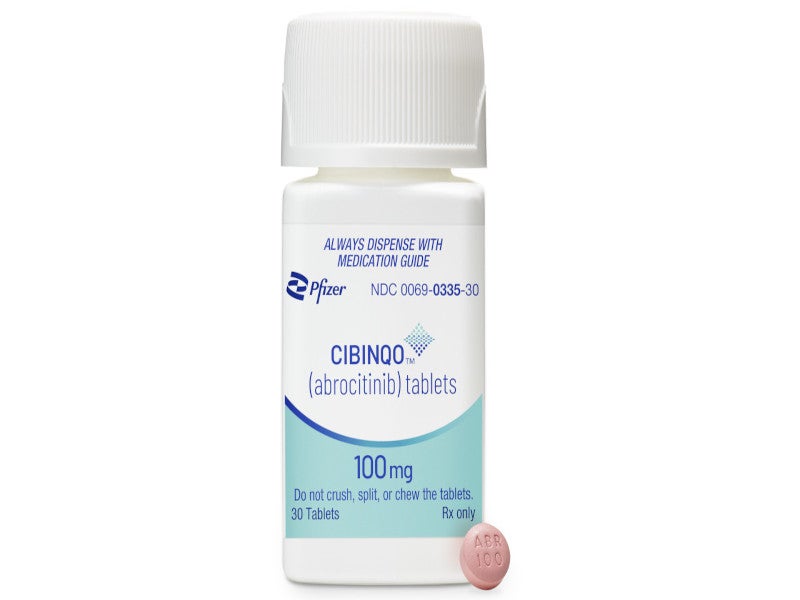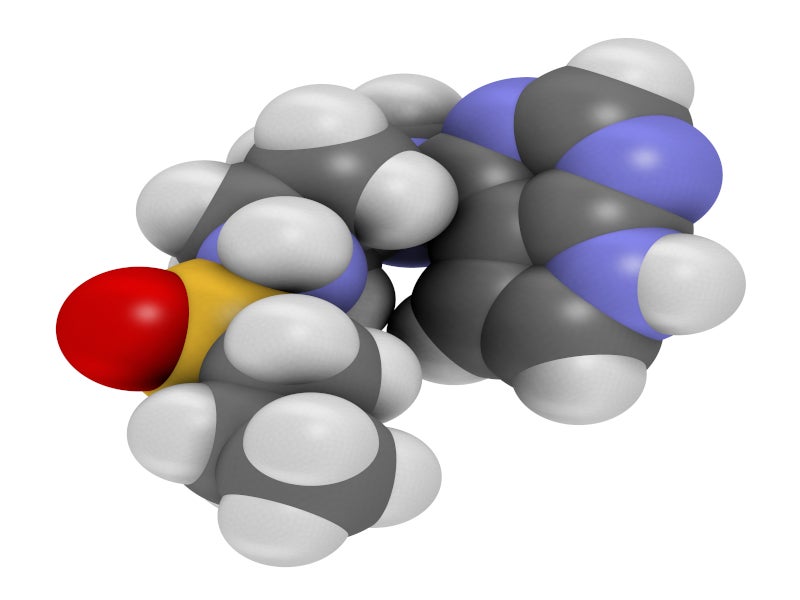CIBINQO™ is a Janus kinase (JAK) inhibitor indicated for the treatment of refractory, moderate to severe atopic dermatitis (AD) in adults and adolescents.
Developed by US-based pharmaceutical company Pfizer, CIBINQO is available as a pink, film-coated tablet in 50mg, 100mg, and 200mg dosage strengths. The 50mg and 200mg strength tablets are oval-shaped, while the 100mg tablet is round-shaped.
The UK Medicines and Healthcare products Regulatory Agency (MHRA) granted a Promising Innovative Medicine (PIM) designation to abrocitinib in 2020 and further granted a favourable scientific opinion for an Early Access to Medicines Scheme (EAMS) to the drug in January 2021. The EAMS allows healthcare professionals to prescribe the treatment before its marketing authorisation for patients with a clear unmet need based on clinical factors.
Regulatory approvals for CIBINQO
In September 2021, CIBINQO received marketing authorisation in the UK and Japan to treat moderate to severe atopic dermatitis in adults and children aged 12 years and older.
In October 2020, the US Food and Drug Administration (FDA) accepted a new drug application (NDA) for the drug and granted it priority review status. The European Medicines Agency (EMA) also accepted a marketing authorisation application (MAA) for the drug in the same month.
In October 2021, the EMA’s Committee for Medicinal Products for Human Use (CHMP) adopted a positive opinion for marketing CIBINQO in Europe. The drug received approval from the European Commission for the treatment of moderate-to-severe AD in adults in December 2021. South Korea’s Ministry of Food and Drug Safety (MFDS) also approved the drug for marketing in the same year.
The FDA approved CIBINQO for the treatment of the condition in adults in January 2022.
Atopic dermatitis causes and symptoms
Atopic dermatitis, often known as atopic eczema or eczema, is one of the most common chronic inflammatory skin conditions. It affects hundreds of millions of people worldwide, including up to approximately 10% of adults.
AD is characterised by rashes or skin lesions with itching and inflammation. Other symptoms of the condition include extensive pruritus, exudation, crusting, excoriation, and lichenification. In infants, the face and non-flexural parts are often affected.
CIBINQO’s mechanism of action
CIBINQO (abrocitinib) is an oral small molecule that selectively inhibits JAK1 reversibly by inhibiting the adenosine triphosphate (ATP) binding site. The JAK1 enzyme is crucial in the inflammatory process that occurs in AD. Abrocitinib functions by obstructing the activity of the enzymes, thus reducing skin irritation and itching.
Clinical trials on CIBINQO
The approval of CIBINQO was based on the results of five clinical trials, namely JADE MONO-Ⅰ, JADE MONO-Ⅱ, JADE COMPARE, JADE REGIMEN, and JADE EXTEND. These trials were part of the JAK1 Atopic Dermatitis Efficacy and Safety (JADE) global development programme, which involved more than 2,800 patients and comprised four Phase Ⅲ studies and an ongoing long-term open-label extension study.
The Investigator Global Assessment (IGA), Eczema Area and Severity Index (EASI), and Peak Pruritus Numerical Rating Scale (PP-NRS) were among the parameters used in the studies to assess improvements in AD patients.
The JADE MONO-Ⅰ and JADE MONO-Ⅱ trials evaluated the efficacy and safety of two doses (100mg and 200mg once a day) of CIBINQO monotherapy in 778 patients aged 12 years and older with moderate-to-severe AD. IGA and EASI-75 responses were evaluated as co-primary outcomes in the trials at week 12. The studies showed improvements in skin clearance, disease extent, severity, and itch.
JADE COMPARE evaluated the efficacy and safety of two doses (100mg and 200mg once daily) of CIBINQO in 837 adult patients with moderate-to-severe AD on background topical medicated therapy. The trial also included an active control arm with dupilumab compared with a placebo. At week 12, the trial evaluated the co-primary endpoints of IGA and EASI-75 responses.
Both doses met the co-primary study endpoints and showed significant improvements in the signs and symptoms of moderate-to-severe AD. The 200mg dose, but not the 100mg dose, of CIBINQO was found to be superior to dupilumab concerning itch response at week 2.
The JADE REGIMEN trial was a 52-week induction, randomised withdrawal, double-blind, placebo-controlled study in which patients were studied following response to initial open-label induction treatment with 200mg of abrocitinib. The study achieved its primary endpoint, showing fewer patients treated with CIBINQO experiencing a flare compared with those on placebo at any point in the trial over 40 weeks following the initial induction phase.
JADE EXTEND is an ongoing, large, open-label study designed to assess the long-term safety and efficacy of CIBINQO.
The most common adverse reactions reported in patients treated with CIBINQO to date are nasopharyngitis, nausea, and headache.





